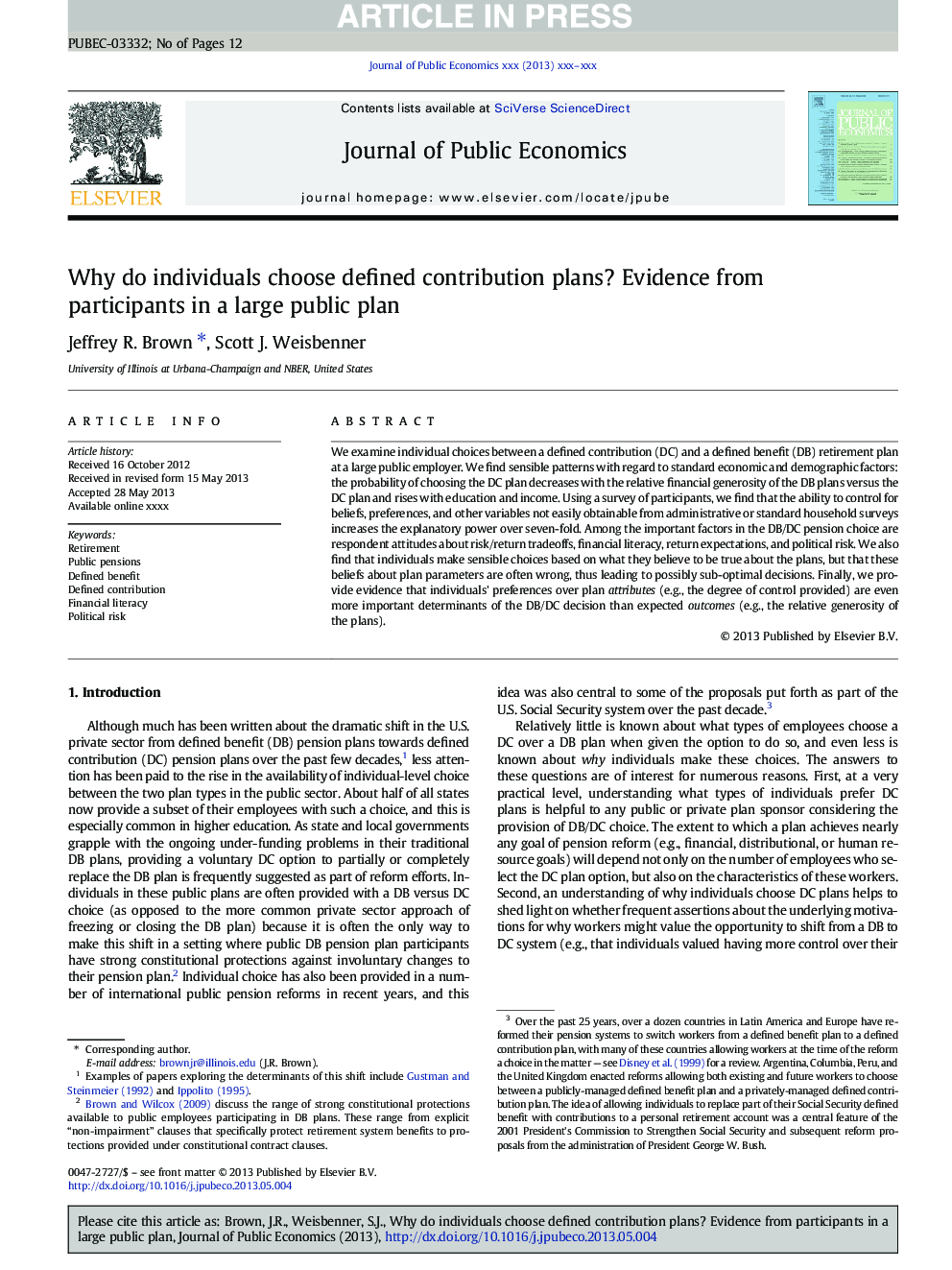| Article ID | Journal | Published Year | Pages | File Type |
|---|---|---|---|---|
| 7370318 | Journal of Public Economics | 2014 | 12 Pages |
Abstract
We examine individual choices between a defined contribution (DC) and a defined benefit (DB) retirement plan at a large public employer. We find sensible patterns with regard to standard economic and demographic factors: the probability of choosing the DC plan decreases with the relative financial generosity of the DB plans versus the DC plan and rises with education and income. Using a survey of participants, we find that the ability to control for beliefs, preferences, and other variables not easily obtainable from administrative or standard household surveys increases the explanatory power over seven-fold. Among the important factors in the DB/DC pension choice are respondent attitudes about risk/return tradeoffs, financial literacy, return expectations, and political risk. We also find that individuals make sensible choices based on what they believe to be true about the plans, but that these beliefs about plan parameters are often wrong, thus leading to possibly sub-optimal decisions. Finally, we provide evidence that individuals' preferences over plan attributes (e.g., the degree of control provided) are even more important determinants of the DB/DC decision than expected outcomes (e.g., the relative generosity of the plans).
Keywords
Related Topics
Social Sciences and Humanities
Economics, Econometrics and Finance
Economics and Econometrics
Authors
Jeffrey R. Brown, Scott J. Weisbenner,
